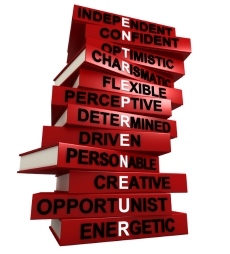10 Apr The Consequences of Prosperity
Years ago in New York, it was common to see people handing out flyers in the subway.En route to work each morning, I would often see one particular group who offered commuters bright orange flyers. The evangelists would scatter themselves along the corridors in groups of twos and threes, such that I would have to weave in between them to avoid their outstretched hands. I had my approach down to a science – a slightly lowered gaze, tightly gripped purse, along with a short, terse shake of the head – to indicate that I was not interested. Still, the next person down the line would insistently shove the paper toward me, forcing me to repeat the same gesture until I was out of the minefield.
As I continued on my journey, I would begin to see spots of bright orange littering the ground. Walking further, the orange spots seemed to canvas more and more of the platform. Evidently the people who had taken them decided they weren’t interested either, and for whatever reason discarded them before reaching a garbage can.
Today, we are bombarded by hawkers handing out free newspapers at every subway entrance. While these items may be more readily welcomed, they still cause a huge mess on the subway stairs and platforms where people discard them.
Seeing the papers strewn about always makes me think: There should be a law that if you are going to pass out free items, you have to go to the public spaces where people discard them and clean them up.
As an abundance and prosperity coach and trainer, I often hear people talk about the new material items they will acquire once they become abundant. As a culture, we associate success with symbols such as a big house, new car, beautiful clothes, jewelry etc. And indeed, as developing countries become wealthier, you can see a corresponding growth of material possessions. This is supported by the idea of a “consumer” economy – if you buy more, you will sell more, and the recession will disappear.
I have a friend who consistently turns down my invitation to participate in my workshops because she says the earth could not support us if the entire population of the planet was as prosperous as we are in the US. In terms of her stance on prosperity – making do with less and the earth’s ability to support us moving forward at this rate – I am in 100% agreement. Not only do I agree, but I consider part of my work to demonstrate that prosperity doesn’t mean just consuming more things. Prosperity is a state of mind. At the end of my workshops, when people share what their future looks like, they share things like family, fulfillment, finding their power, and joy – not how excited they are to get more stuff.
I wonder what our world might be like if every manufacturing corporation was responsible for the impact of their products from conception to their final resting places – be it in our air, on our streets, in our garbage dumps, or in our oceans. If companies had to consider not only the cost to produce, market and sell their products, but also the cost of disposal – say in the form of an imposed levy – how would they change their packaging and manufacturing process? Money can be a strong motivator for change and responsibility. I can imagine potato chip factories ensuring that their bags are decomposable like the short lived (and apparently ineffective) Sun Chips bag, and the size of packaging would shrink considerably. Since Styrofoam (or plastic foam) never decomposes and is difficult to recycle, a higher levy would be placed, making it less economically feasible to manufacture. Perhaps also, caps would be redesigned to stay attached to bottles, and tiny plastic trinkets in goody bags from birthday parties would fall out of favor.
I’m guessing that any number of lobbyist groups would strongly object to these types of “unfair” taxes, making their passage difficult. However, I recently watched a haunting video clip about what is happening on an island in the middle of the Pacific Ocean – 2000 miles from any other shoreline and uninhabited by humans. The thousands of birds on the island are swallowing plastic objects, thinking they are food. This detritus becomes permanently lodged in their intestines, eventually killing them.
The narrator in the video asks, “Do we have the courage to face the realities of our time? And allow ourselves to feel deeply enough that it transforms us, and our future?
A worthy question, indeed.
 Have you ever wondered about your own strengths and weaknesses as the “CEO” of your business? I’ve created a quiz that can help you gain insights into your leadership style and areas for growth. It’s a fun way to reflect on your skills and discover opportunities for development. Take the quiz and unlock your CEO potential today! Click here to take the quiz.
Have you ever wondered about your own strengths and weaknesses as the “CEO” of your business? I’ve created a quiz that can help you gain insights into your leadership style and areas for growth. It’s a fun way to reflect on your skills and discover opportunities for development. Take the quiz and unlock your CEO potential today! Click here to take the quiz.


